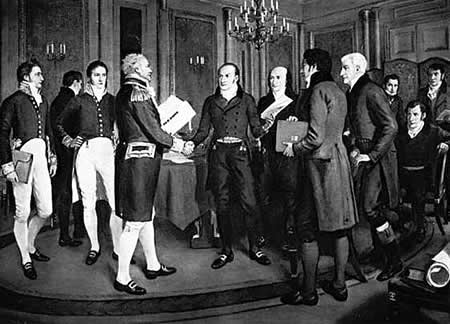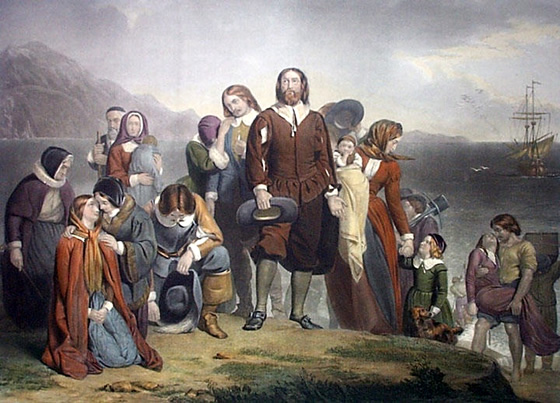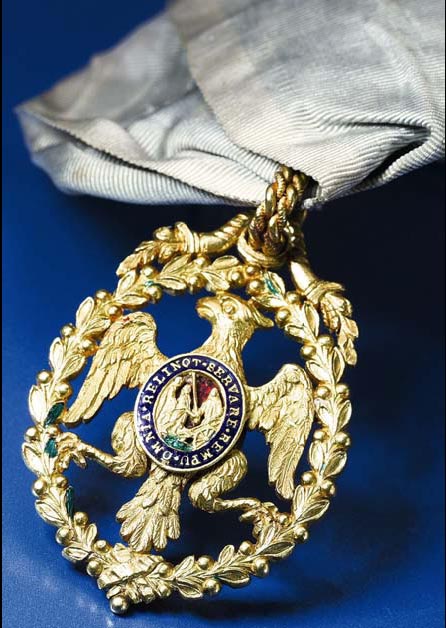 |
| Meriwether Lewis |
The swell explorer furnishes perhaps the earliest representative of what became a swell American tradition: the dearest celebrity whose ignominious, untimely decease spawned conspiracy theories intended to restore unopen to of the hero’s dignity.
Lewis’s apparent suicide at a remote inn off the Natchez Trace inwards Oct 1809, when he was only thirty-five years old, ignited a tardily simmering cauldron of choice explanations. By the conspiracy-happy 1990s, these included assassination past times agents of General James Wilkinson, with a cover-up orchestrated past times Thomas Jefferson himself.
Background
H5N1 soldier past times occupation, the Virginia-born Lewis was Jefferson’s individual secretarial assistant for a fourth dimension earlier achieving international fame past times successfully leading an expedition to the Pacific together with dorsum betwixt 1803 together with 1806.
Firming upwardly the U.S. claim to the just-completed Louisiana Purchase together with laying the groundwork for subsequently expansion into the Pacific Northwest spell also bringing dorsum a wealth of scientific information, Lewis together with his colleague William Clark became the novel nation’s initiative off existent celebrities, likely surpassing many of the founders themselves. President Jefferson rewarded his protégé with an appointment equally governor of the Louisiana Territory he had simply explored, a postal service that Jefferson regarded equally the second-highest inwards the land.
Despite his sense equally Jefferson’s presidential “staff,” Lewis was no politician, together with found his post-expedition life deeply disappointing. Delaying his movement to the territorial uppercase for almost a year, Lewis searched for a married adult woman together with planned to issue the journals of the expedition, but never managed to larn either projection off the ground.
Once ensconced at St. Louis, Lewis performed terribly equally territorial governor, clashing with to a greater extent than experienced politicians similar Territorial Secretary Frederick Bates, who called his superior “a large baby,” together with getting the affairs of his purpose muddled plenty to have got unopen to expenditures rejected past times the War Department. In September 1809, Lewis ready out on a trip to Washington to clear his bring upwardly together with consider his publishers.
Southern Death Trip
The trip did non go real well. Although conspiracy theorists indicate out that footling was said of it spell Lewis was alive, Jefferson, William Clark, together with others admitted after his decease that the novel governor had developed serious psychological problems, including intense, habitual hypochondria, for which Lewis oftentimes medicated himself; a terrible drinking problem; together with what nosotros would telephone phone today depression. Alcoholism was a mutual affliction inwards the frontier state of war machine together with seems to have got worsened inwards Lewis’s representative nether the stress of his political together with personal failures.
Only ii hundred miles into the journey, downriver from St. Louis at New Madrid, Lewis had to live taken ashore from his boat together with treated for unopen to real, imagined, or self-induced illness. He made out his concluding volition together with testament together with only reembarked on the voyage when earthquakes broke out inwards the area, leading his fearful valet to have got his master copy set dorsum on the boat.
At his side past times side port of call, Fort Pickering nigh present-day Memphis, Lewis arrived inwards a nation of “mental derangement,” inebriated together with suicidal. The fort commander, Major Gilbert Russell, had Lewis removed from his boat together with detained him for ii weeks, restricting his alcohol intake to “claret together with a footling white wine” together with posting guards to forbid the explorer from doing violence to himself.
Lewis recovered his senses together with promised never to bear upon intoxicants again. He borrowed money together with horses from Russell, together with ready out for Washington overland, via the Natchez Trace, on 29 September 1809.
Apparently Lewis barbarous off the railroad vehicle rather rapidly during his concluding journey. His traveling companion after Fort Pickering, Indian agent James Neelly, found him “deranged” 1 time again equally they crossed the Chickasaw Nation, where they had to halt together with allow Lewis residual for ii days.
Shortly after, Neelly brought the suspicion of generations of conspiracy theorists on himself past times going after unopen to lost horses together with sending Lewis on alone, planning to run into 50 miles farther upwardly the Trace, at the abode of a white identify unit of measurement that accommodated travelers inwards a identify called Grinder’s Stand inwards present-day Lewis County, Tennessee.
Lewis appeared at the Grinder (also spelled Griner) business solid on the eve of 10 Oct 1809, together with though the accounts of what happened at that spot differ inwards unopen to particulars, all concord that the governor was inwards a highly agitated nation of mind. Priscilla Griner, the lady of the business solid together with the only witness to give testimony, remembered Lewis pacing dorsum together with forth inwards the room where he was lodged talking loudly to himself “like a lawyer.”
In the wee hours of eleven October, Griner heard ii pistol shots but was also frightened to investigate. Through the cracks inwards the log building, however, she saw that Lewis had blasted away component subdivision of his ain skull, shot himself inwards the side, together with also tried to cutting his ain pharynx with a razor, but none of it was plenty to convey immediate death.
Cowering with her children, Griner heard the explorer quest for H2O but ignored his pleas out of fright together with saw him crawl off moaning. There are several variations of Lewis’s concluding words, but 1 appropriate remark recurs: “How difficult it is to die.”
Conspiracy Theories
Few questions were raised nigh Lewis’s decease at the time, but offset inwards the 1840s, stories began to circulate that he was murdered, specially inwards Tennessee. Even then, according to historian Dawson A. Phelps, the storey did non have much world comment for unopen to other one-half century, past times which fourth dimension the murder interpretation had larn an established tradition with the locals together with the Lewis family. From the 1890s on, it began to have occasional endorsements from Lewis together with Clark scholars.
Even this tradition was non necessarily a conspiracy theory. Those distraught past times the pathfinder’s poor terminate may have got taken comfort inwards the thought of murder-not-suicide, but the few concrete ideas they circulated nigh who mightiness have got killed him or why were vague together with rather mundane inwards nature.
The leading explanation was Lewis had been killed past times robbers, perhaps his ain retainer Pernier. The prove for a conspiracy or fifty-fifty murder is sparse to nonexistent, resting largely on legend, rumors generations removed from the source, together with the willing disbelief of subsequently admirers that the swell human being could have got been capable of such degrading together with desperate behavior.
Some have got fingered lone eyewitness Priscilla Griner equally an accomplice who lied to encompass upwardly for her supposedly absent hubby Robert together with unknown others. The legends tell of Robert existence tried for murder but acquitted for lack of evidence.
It is sure as shooting truthful that Mrs. Griner’s credibility equally a witness is less than total, but that truly undermines the conspiracy theory further. Priscilla embroidered her original storey for an interviewer twenty-nine years after Lewis’s death, adding stuff that made the events hold off to a greater extent than suspicious.
Her subsequently business organization human relationship included the claim that ii men came to the business solid looking for lodging together with quarreled with Lewis, along with other conspiratorial details: 3 shots instead of two, pregnant that Lewis’s ii pistols (the sort that had to live loaded after each shot) could non have got done the job; together with an apparent central of vesture betwixt Lewis together with his retainer sometime inwards the night.
The most thoroughgoing Lewis conspiracy theory was propounded past times muckraking pop historian (and Pulitzer Prize winner) David Leon Chandler inwards his 1994 book, The Jefferson Conspiracies. Departing from the commons practice, Chandler endorsed Mrs. Griner’s revised 1838 business organization human relationship inwards full, together with surmised that Lewis was murdered spell trying to escape inwards his servant’s clothes, mayhap past times or with the assist of his quondam companion Neelly.
As the championship of the majority made obvious, Chandler was eager to live the Woodward together with Bernstein of the early on American commonwealth together with describe the murder all the agency dorsum to the White House, or at to the lowest degree Monticello.
Recounting the history of the Aaron Burr conspiracy together with the treasonous activities of General Wilkinson (a Castilian spy together with Burr crony equally good equally the ranking official inwards the frontier army), Chandler theorized that Lewis carried unopen to sort of prove against Wilkinson together with was hunted downwardly past times the general’s henchmen, who thus fabricated the tales of drunkenness together with suicide that became the official interpretation.
Chandler was able to give Jefferson himself only a modest purpose inwards the titular conspiracies. His major accusation was that the just-retired president helped forestall farther investigation past times accepting the suicide explanation also rapidly together with lending acceptance to the thought that Lewis was an alcoholic.
Jefferson’s alleged motive was to avoid exposing Wilkinson, whose integrity Jefferson had publicly certified past times maintaining him inwards an of import state of war machine postal service together with past times using him equally the star authorities witness inwards Aaron Burr’s recent treason trial.
Although Jefferson’s confidence inwards Wilkinson was politically calculated together with extremely misplaced, Chandler’s theories take hold real footling water. Resting the crux of his declaration on the half-hearted nature of the investigation, he echoed the modern assassination conspiracy literature, but begged the query of what sort of investigation could mayhap have got been conducted at thus remote a location at such an early on date.
If 1 accepts the far-fetched premise of hired political assassins stalking the American woods inwards 1809, to kill a national hero, thus Lewis’s best friend together with boyfriend explorer, William Clark, also has to live included inwards the conspiracy. No human being knew Lewis, got along with him better, or respected him more, but Clark accepted the official business organization human relationship simply equally readily equally Jefferson.
The “Jefferson conspiracy” against Meriwether Lewis is best considered equally anachronistic speculation that tells us to a greater extent than nigh late-twentieth-century pop civilization than it does nigh Lewis or Jefferson.






















